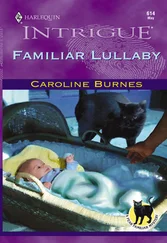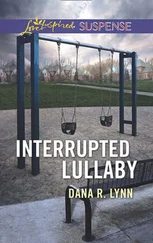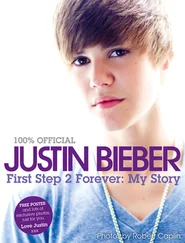“I wouldn’t recommend it. Not if he was my patient.”
Peter said he understood.
“Then again,” Ann said, “he’s not my patient.”
If Peter had learned anything it was this: the point of a tour is to keep moving.
NO ONE SAID a word at takeoff. The plane climbed and climbed. Peter had put his career on the line, and he wasn’t sure why. It had to be the most rock-and-roll thing he’d ever done.
The mood lightened some once the pilots announced that they’d reached their cruising height.
“Here’s the takeaway,” Cyril said, “the man would rather die on a plane than live in Ohio.”
“You ever have any close calls?” Wayne asked.
“Nobody’s reminiscing,” said Cyril.
Peter could feel Alistair’s eyes boring into him; slumped in his club chair, Cross’s son looked like a stoned toad.
“What if I have to sneeze?” Cross asked.
“Don’t fight it,” Peter said.
Tomorrow morning, Martin would commandeer one of the hospital’s conference rooms, draw the shades, turn off the lights, and, with the aid of a ten-thousand-dollar HD projector, throw Cross’s scans on the wall. Then he and George Milakis, the hospital’s chief of surgery, would lean back in their chairs and wiggle their laser pointers at a six-foot slice of the singer’s brain. They might make small talk about the relative merits of the Siemens scanners, about resolution and detail and crispness as pertaining to, say, the singer’s nasal cavitation, the resonant cathedral that gave Cross’s voice its inimitable character. And after a few minutes, because they were professionals, they would get down to the business at hand. Ogata would probably teleconference in.
TILTING HIS HEAD back to bounce his voice off the ceiling of the cabin, Alistair said, “Can we have some fun in Lexington?”
“Anything you want,” his father said.
“We need an animal sacrifice to please the gods.”
“Sounds like a plan.”
“And bourbon.”
“Rum is the new bourbon,” offered Wayne.
Cross chuckled.
“I’m not joking,” said Wayne.
Cyril said, “That’s why he’s laughing.”
“I don’t get it.”
Cross said, “Cyril, what was the name of that guy?”
“Malcolm Littlefield.”
“I can’t remember what he said.”
“He said, ‘Cats are more empathic than dogs.’”
Alistair started laughing, too.
Cross said, “I fired him on the spot.”
“You’d been wanting to let him go for a while,” Cyril added.
Cross flashed all his teeth in a vicious smile. “But he didn’t know that. To this day he believes he got fired for sticking up for felines.”
Wayne said, “Forget what I said about rum.”
They all laughed, even Peter. For a minute or more, it seemed like the funniest thing anyone had ever said.
The pilot’s voice came over the intercom. “That, folks, was the gentlest landing in the history of aeronautics.”
It was true — the plane was already on the ground.
Rosalyn purrs in her bed.
I won’t let myself watch her sleep. For one thing, I wouldn’t want anyone to watch me sleep. The other reason is, I’m afraid that if I watch her some petty part of me might start to pick her apart.
I walk to the window.
Her room overlooks the Supreme Court of Ohio; a giant steel gavel rests in a rectangular reflecting pool by the south entrance to the building. The scale of the hammer — I can see it from the window of Rosalyn’s room — suggests that it belongs to God, since only a hand descending from a cloud might wield it.
On CrossTalk, I can assume, people are floating theories to explain why Cross chose tonight to play “A.D.C.” But that’s not what I’m caught up on. One can’t know another person’s intentions unless he’s willing to share (and even if he’s willing to share them, it’s still not that simple.) I’m not thinking about intentions. The question that keeps me up is this: why did the song sound different the second time he played it.
I have been called a hopeless romantic and a hopeless loser, but neither of these charges is true. I am always full of hope.
I close my eyes and listen to Rosalyn sleeping.
Peter dreamed of horses: horses that looked as wise as judges; horses with faces like graven ancestors; horses in white lab coats, their lacquered hooves clacking on hospital corridor floors.
When he woke, it seemed he was already sitting up in the middle of a bed. The sun streamed in — Martin’s tinny voice said, “. . you know what you’ve done, don’t you? You saved his fucking life.” He sounded giddy.
“You saw the scans? It’s not even remotely what we were looking for.”
“That’s the beauty of it. Preventative medicine, Peter. Repeat after me: pre-ven-ta-tive medicine. Ogata claims he cut Cross into a million slices this spring and there was no indication of anything. Trust me, we hit the lottery with this. We’re just spitballing here, but what do you think about a Tony Ogata Center for Preventative Medicine at Rochester Memorial.”
Peter could tell Martin had him on speaker.
“Is someone else in the room with you?”
“We’re all very proud of you,” Peg said. “Grand slam.”
Martin said, “You think Cross would give us a testimonial? Marketing is going to eat this up.”
“This is going to be very big for you,” Peg said. “For all of us.”
Martin said, “I wanted to send a bottle of champagne to your room, but we didn’t want to send the wrong message.”
“I vetoed that idea,” said Peg.
It seemed to Peter that they were waiting for him to say some code phrase, or for an apology. “Thanks for this opportunity.”
“You’re our man in Saipan,” Martin said.
“What should I do now?”
“Do?” Martin repeated.
“There’s really not much more you can do,” Peg said
Martin said, “I guess if he wants you to stick around the hospital for a day or two. .”
“Sure,” said Peg. “Obviously, he trusts you.”
“Nobody’s at the hospital.”
Martin said, “I bet Alistair will stop by.”
Peter swung his feet off the bed and stood up. “That’s not what I meant. I mean Cross isn’t in the hospital.” He looked over a wooded park the approximate size and shape of a baseball diamond. “We’re not even in Columbus.”
Martin said, “Don’t tell me you’re in Lexington.”
“Why would he be in Lexington?” Peg asked.
“He’s got a show here tonight.”
“Motherfucker,” Martin said, “I really want to be at that show.”
PETER PUSHED A button and waited for the phone to ring.
Judith answered. “Hello?” She and Rolf used an old RadioShack portable phone — they greeted everyone the same since it didn’t have caller ID.
“What happened to the Scientist?”
“Well, good morning.”
“I’m sorry. I had a late night.”
“He would have been a useless father. You have to trust me.”
“Did he just leave one day? ”
“You’re asking me to remember something that happened more than thirty years ago.”
Instead of quibbling, Peter said, “Thank you.”
“I’d been sleeping on a cot in a tent. Cross offered me a spare guest room with a queen-sized bed and matching sheets. I told the Scientist we were through.”
“You didn’t call him the Scientist.”
“I called him Lawrence.”
“You asked him to leave and he left?”
“He hung around for a week or two. I’m not sure if he was hoping I’d change my mind, or what. Then one morning his truck was gone.”
“Was I really born in Virginia?”
Читать дальше












